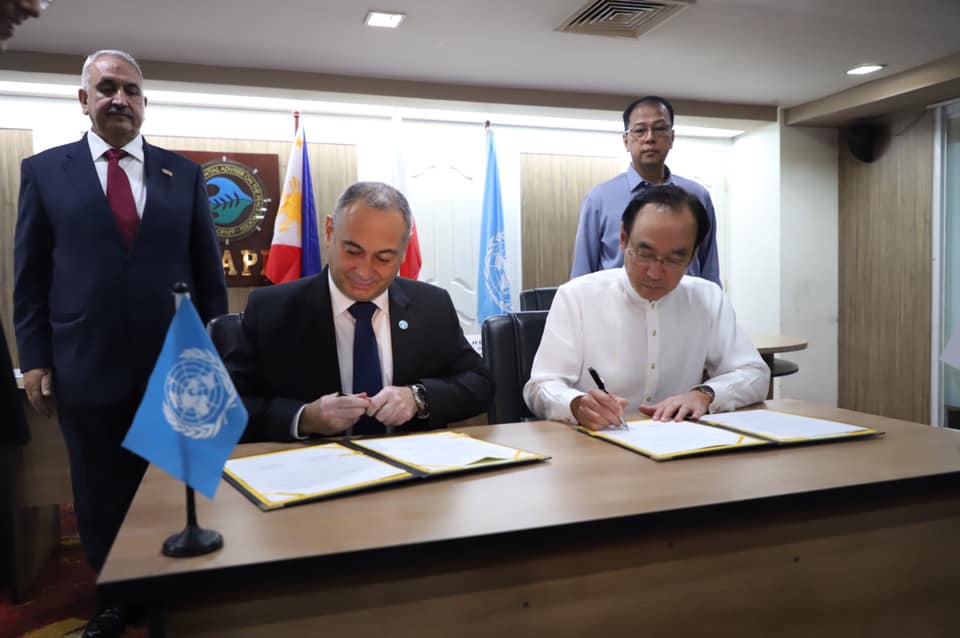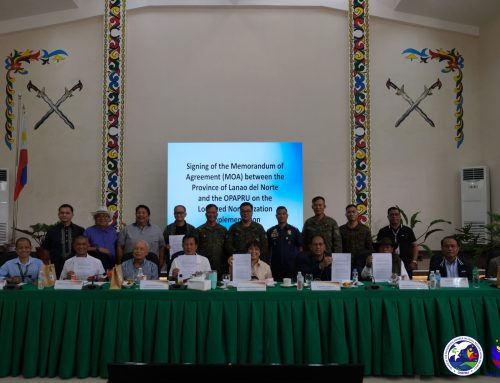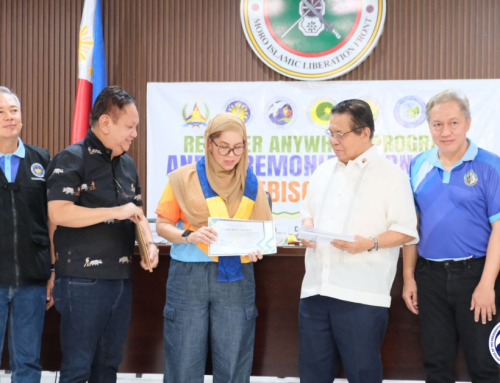PASIG CITY, March 7, 2019 — Residents of the Bangsamoro Autonomous Region in Muslim Mindanao (BARMM) will have greater access to safe and reliable water supply as well as acquire new knowledge and skills on food production and security through new projects signed here on Wednesday.
The “Project for Agricultural Training for the Establishment of Peace in Mindanao” and the “Project for the Improvement of Water Supply Equipment Management Capacity for the Establishment of Peace in Mindanao” were signed by Japanese Ambassador to the Philippines Koji Haneda, Food and Agriculture Organization (FAO) Country Representative Jose Luis Fernandez, and International Labor Organization Country Director Khalid Hassan with Presidential Peace Adviser Carlito Galvez Jr. as witness.
In his message during the event, Galvez lauded the international peace partners for their continuing support for the peace process.
“We are honored and extremely grateful for our international peace partners’ unwavering commitment and continuing support in our quest for peace and development in Mindanao. With these projects, we are confident that the farmers and fisherfolks will be equipped with the necessary skills that will enable them to obtain sustainable sources of livelihood,” he said.
The projects will be implemented by the ILO and FAO and will be funded by the Government of Japan with US$2.6 million (P135.8 million) and US$1.7 million (P88.8 million), respectively.
The FAO will be providing the locals with vocational skills training, including hands-on activities and demonstrations on crop production, integrated pest management, and harvest and post-harvest processes.
“I would like to reiterate the Government of Japan and FAO’s commitment to supporting the Government of the Philippines in ensuring sustainable and profitable agriculture that will translate to a better quality of life of Mindanaoans,” Fernandez said.
Meanwhile, the ILO will spearhead the community-based water supply development wherein the communities will be involved in developing, constructing, operating, and maintaining water supply, sanitation, and hygiene facilities.
Hassan emphasized the ILO’s strengthened vision for social justice and promotion of decent work as the organization marks its 100th anniversary.
“This project will therefore be one of the centerpieces for ILO’s Centenary as interventions in the Bangsamoro areas are meant to create jobs while advocating the Decent Work Agenda,” Hassan said.
For his part, Ambassador Haneda expressed his optimism for the two projects.
“I look forward to seeing more households in the Bangsamoro region with better access to potable water, averting vulnerabilities to water-borne diseases caused by unsafe sources,” Ambassador Haneda said.
The ambassador also said the skills training to be organized by the FAO will help the farmers, fishermen, and decommissioned combatants acquire up-to-date agricultural knowledge that they can use to gain stable employment or set up their own business.
The Japanese Government has played a significant role in the Bangsamoro peace process in various capacities through its involvement in peace mechanisms and development programs.
Recently, Japan pledged US$2.3 million (P120 million) for the security aspect of the Normalization program for the Bangsamoro. It also committed a US$200 million (P10.4 billion) loan for road infrastructure projects in conflict-affected areas in Mindanao.












